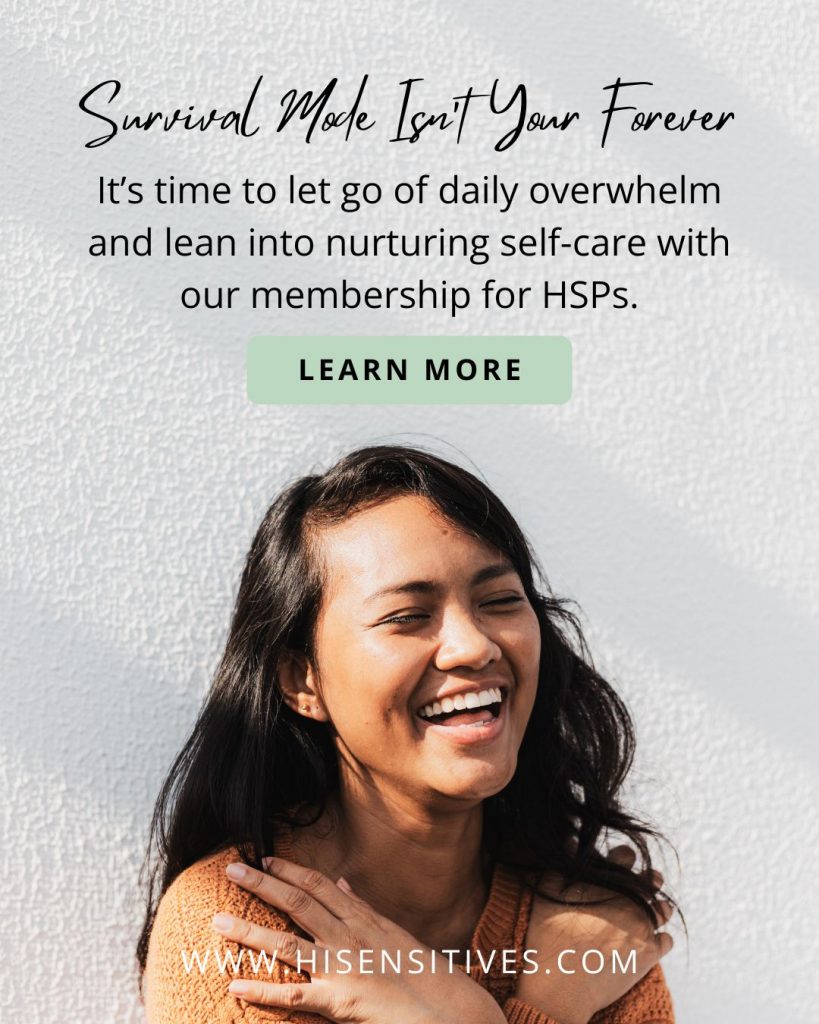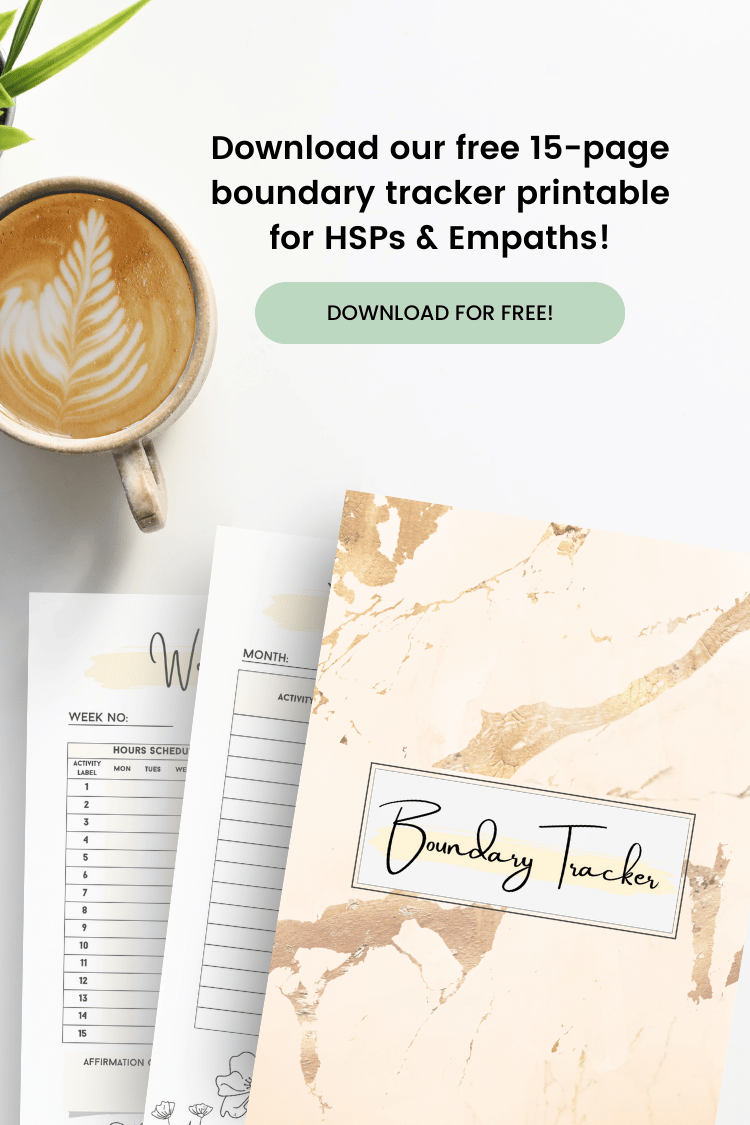Embrace resting, shed guilt. Learn how to prioritize self-care and well-being in a productivity-driven world.
Estimated reading time: 7 minutes
In today’s fast-paced world, the pressure to constantly be productive can be overwhelming. Many of us, especially those with a highly sensitive and empathic nature, often find ourselves feeling guilty when we take a moment to rest. This guilt is deeply rooted in societal expectations and personal experiences.
As someone who has struggled with this very feeling, I understand how challenging it can be. Back in school in Germany, I learned that being a straight-A student was the only way to be considered “good enough.” This mindset shaped me into a high achiever but left me with a profound sense of self-worth tied to productivity.
However, through my personal growth journey and learning more about my Human Design type, I have come to appreciate the art of resting and embracing hermit mode. In this blog, I want to share my insights and experiences to help you shed the guilt associated with not constantly being productive.
Here’s What You’ll Discover:
The Culture of Productivity
Our society has a culture that glorifies productivity above all else. We are bombarded with messages that suggest success is directly tied to how much we accomplish in a day. The more tasks we check off our to-do lists, the more valuable we feel.
This constant striving for productivity can lead to burnout, stress, and feelings of inadequacy when we do decide to take a break. But it’s essential to recognize that resting is not lazy; it’s a vital component of our overall well-being.
The Guilt of Slowing Down
Like many of you, I used to feel immense guilt when I rested. The fear of not being productive enough would creep in, and I’d find myself thinking, “I should be doing something.”
This guilt was deeply ingrained in my upbringing and education, where the pursuit of perfection and high achievement was relentlessly emphasized. The pressure to always be at the top of my game left little room for rest, both physically and mentally.
It was only when I embarked on my personal growth journey and sought guidance from experts that I began to shift my perspective. I discovered that embracing my identity as a Human Design Projector meant that resting was not just a luxury but a necessity.
Understanding my unique energy dynamics allowed me to see that rest was an essential aspect of my design, enabling me to operate at my best when I honored my need for downtime.
Why Resting Matters
Resting is not lazy; it’s a fundamental aspect of our physical and mental health. Here are some compelling reasons why you should prioritize rest in your life:
- Rejuvenation: Rest allows our bodies and minds to recharge. When we rest, we give ourselves the opportunity to heal, repair, and recover, both physically and emotionally.
- Creativity and Innovation: Rest fosters creativity and innovation. It’s during moments of relaxation that our minds can wander freely, leading to new ideas and perspectives.
- Stress Reduction: Rest is a powerful stress reliever. Taking breaks and allowing ourselves to rest can significantly reduce stress levels and improve our overall well-being.
- Enhanced Productivity: Counterintuitive as it may seem, resting can actually enhance productivity. When we are well-rested, we are more focused, efficient, and capable of tackling tasks with a clear mind.
- Improved Relationships: Resting also benefits our relationships. When we take the time to rest and recharge, we are better equipped to connect with others emotionally and empathically.
How to Stop Feeling Guilty While Resting
Let’s explore how to change your guilt mindset around resting. Here are 6 concrete mindset tips and changes that can help you embrace rest without feeling guilty.
- Reframe Your Beliefs: Begin by challenging the beliefs that have led to your guilt about resting. Recognize that rest is not a sign of laziness but a necessary component of overall well-being. Understand that being productive does not define your worth as a person.
- Practice Self-Compassion: Treat yourself with the same kindness and understanding that you extend to others. Understand that you are human, and like everyone else, you need rest to thrive. Replace self-criticism with self-compassion.
- Set Realistic Expectations: Acknowledge that you cannot be productive 24/7. Set realistic expectations for yourself and your daily tasks. Understand that taking breaks and resting is not a hindrance but a way to improve your overall efficiency. A study in Sweden has shown that people who work 6 hours a day are more productive, healthy and engaged than those who work longer hours. Let that sink in for a while!
- Celebrate Small Wins: Instead of solely measuring success by your productivity, celebrate small wins along the way. Recognize that resting is an achievement in itself, especially if it’s something you’ve struggled with in the past.
- Reconnect with Your Purpose: Reflect on your life’s purpose and values. Understand that resting is not a detour but a means to rejuvenate and refocus on what truly matters to you. It can actually help you better align with your purpose.
- Surround Yourself with Supportive People: Seek out a supportive community or individuals who understand the importance of resting. Surrounding yourself with people who value self-care and well-being can reinforce positive mindset shifts.
Incorporating these mindset tips and changes into your daily life can gradually help you shift your perception of resting. Remember that embracing rest is not a one-time event but an ongoing journey towards a healthier and more balanced approach to life. Over time, you’ll find that the guilt surrounding resting dissipates, making space for a happier, more relaxed, and more fulfilled you.

Embracing Rest as a Practice
So, how can you begin to embrace the art of resting without feeling guilty? Here are some practical steps to get you started:
- Set Boundaries: Establish clear boundaries for work and personal time. Respect these boundaries to ensure that you allocate time for rest without feeling guilty about it. Our free boundary tracker printable can help you with that!
- Mindfulness and Self-Compassion: Practice mindfulness and self-compassion. Be kind to yourself and acknowledge that you deserve rest, just like anyone else.
- Schedule Rest: Include scheduled rest periods in your daily or weekly routine. Treat these times with the same importance as your work commitments. Inside our Ideal Self Membership, certified hypnotherapist and breathwork practitioner Ashley Bentley mentioned that you should – ideally – schedule breaks in your day every 90 minutes in order to regulate your nervous system as an HSP.
- Discover Your Energy Type/Needs: If possible, explore your unique energy dynamics through systems like Human Design. Understanding your energy type and needs can help you tailor your rest practices to your specific needs.
- Engage in Self-Care: Invest in self-care activities that help you relax and rejuvenate. Whether it’s reading, taking a bath, or simply sitting in silence, find what brings you peace and incorporate it into your routine.
- Set Specific Rest Goals: Establish specific goals for your resting periods. For example, you might aim to read a certain number of pages in a book, practice deep breathing exercises, or simply enjoy a leisurely walk. Having purposeful rest activities can alleviate guilt.
- Track Your Progress: Keep a journal to track your progress in changing your mindset about resting. Document how you feel before and after rest, noting any positive effects on your mood, energy levels, and overall well-being.
Some Final Remarks
In a world that constantly pushes us to be productive, it’s crucial to remember that resting is not lazy; it’s an essential part of a balanced life. My journey from feeling guilty about taking a break to embracing rest as a vital practice has transformed my life.
I encourage you to embark on your own path toward guilt-free rest. Prioritize self-care, set boundaries, and honor your unique energy needs. As you do, you’ll discover that resting is not a sign of weakness but a powerful act of self-love and self-preservation. This year, make it a goal to slow down, recharge, and embrace the art of resting. Your well-being will thank you for it.
Disclaimer: In this article, we collaborated with AI while writing articles, meaning that we used it as a personal assistant to provide valuable information to our readers. The personal touch through stories and personal examples and the editing of the article have been performed by the author.








